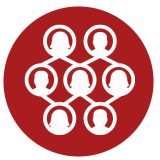Ensuring that every person involved in the internal and external communication processes is aware of gender-issues, discrimination and stereotypes and develop the necessary skills to guarantee the correct use of language, images, and so on when using different communication tools.
Routine revision of any text, communication, images, from a gender equality and diversity standing point, use of language included, for inside and outside destination
Main aim of the action
Expected impact/outcome
Mainly to increase skills and competences of the people in charge of communication processes, in order to make the correct use of language (written, talked, images, and so on…)
Implementation
One of the first steps was to identify the different areas related with the communication processes of the university, such us marketing area, academic secretary (in charge of the development of many academic guides, regulations, and so on), press office, internal communication, web coordination, etc. Afterward, we identified the people involved in each of those tasks, being some of them internal people and others suppliers-collaborators that directly work with the university in different communication processes.
Apart from talking to all the internal teams involved in communication tasks in the four faculties, we talked to our main outside suppliers such as the company that collaborates with us in the elaboration of all the catalogues, reports, magazine, advertising campaigns, etc., those who collaborate with us in the development and actualization of our website, journalists in charge of our press office, …and they all showed a big enthusiasm in our proposal to participate in a training session.
In total, we identified around 30 people. The training session will be held on January 11th, 2019, with a duration of 4 hours and an expected attendance of 20 people.
During the session, apart from developing skills to improve the correct use of language in all communication processes, the objective is also to review some of the most important documents we nowadays have for communication, in order to analyse its use of language and make the necessary corrections and improvements that should be made.
Also, as a consequence of this action, we are foreseeing actions such as:
- Establish a vigilance process that would allow to periodically review, in a structured way, the different communication documents, in order to guarantee their correct use of inclusive language
- Website: to publish, on the area related to gender issues, guides, manuals and recommendations about the use of inclusive languages when writing reports, making presentations, giving speeches, and so on.
- To include, in the guides we give students about how to write reports (projects,…), recommendations to use inclusive languages and offer them guidelines about how to do it and where to find helpful documentation about this matter.
Results
As the session will be held on January, we still don´t have information about its results.
Evaluation
After the session, an evaluation form will be sent to all the participants, in order to gather feedback from the people who will take part on it.
Lessons learnt/transferability/reflection
Even though the training session has not been held yet, something we have learnt from the process is how important is to involucrate our outside providers-collaborators in communication processes; they really showed a very positive answer and enthusiasm to our proposal to participate in this action.
Key area
The governance bodies, key actors and decision-makers
Type of action
Training/awareness-raising
Organization
Mondragon Unibertsitatea (MU)
Higher education institution
Action level of implementation
Researchers/professors and technical and administrative staff


